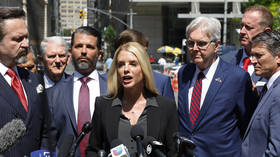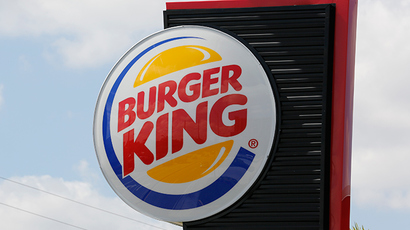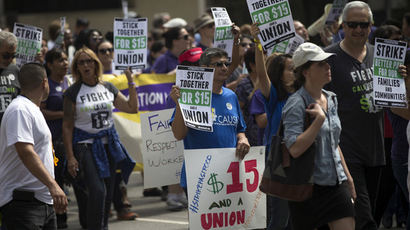US cracks down on ‘unpatriotic’ corporations’ tax inversion deals

The American corporations labeled unpatriotic for exploiting loopholes to avoid US taxes may see the so-called tax inversion schemes much less lucrative with the new rules announced by the US Treasury to crack down on the practice.
The American corporations labeled unpatriotic for exploiting
loopholes to avoid US taxes may see the so-called tax inversion
schemes much less lucrative with the new rules announced by the
US Treasury to crack down on the practice.
“Today, in an important first step, the Treasury is
announcing targeted action to meaningfully reduce the economic
benefits of corporate inversions, and when possible, stop them
altogether,” US Treasury Secretary Jack Lew, said in a
statement on Monday.
A number of US corporations were labeled “unpatriotic”
for engaging in tax inversion, where an American company buys up
a foreign one and then moves their headquarters to the host
country to take advantage of the lower corporate tax rates.
America’s corporate tax rate is 35 percent, while countries such
as the UK enjoy a rate of 20 percent and Ireland a rate of 12
percent. Lower corporate taxes are believed to be the reason why,
earlier this year, Pfizer was trying to buy Britain’s Astra
Zeneca and move its headquarters to the UK. The deal fell through
because an agreement couldn’t be reached on a price, but
estimates are that without rule changes the US could lose $19.5
billion in tax revenue over ten years through inversion,
according to the Congressional Joint Committee on Taxation.
Fifty corporations, including Carnival Cruises and Michael Kors,
have already taken advantage of the practice, according to the
Congressional Research Service. President Obama wanted Congress
to act but revising tax laws is a lengthy process, leading the US
Treasury to announce a new set of rules to close the loopholes.
“This action will significantly diminish the ability of
inverted companies to escape US taxation. For some companies
considering deals, today’s action will mean that inversions no
longer make economic sense,” Lew said.
Three new measures will seek to prevent companies from creating
ways to access earnings from a foreign subsidiary without paying
US taxes through “hopscotch” loans, in which companies shift
earnings by lending money to the new foreign parent company while
skipping over the US-based company, according to the Associated Press.
Another rule change would make it harder for merged or acquired
companies to benefit from lower foreign taxes by tightening the
law over US shareholders that own less than 80 percent of the new
combined company.
“Inversion transactions erode our corporate tax base,
unfairly placing a larger burden on all other taxpayers,
including small businesses and hardworking Americans. It is
critical that this unfair loophole be closed,” said Lew.
It was the Burger King deal that shook up the Obama
Administration and Congress enough to declare that the
Whopper-maker’s acquisition of Canadian coffee chain Tim Hortons
was unpatriotic. Lawmakers said that while legal, it could
threaten the nation’s coffers and was “not right.”
READ MORE: US Senators urge ‘unpatriotic’ Burger King to ditch move to Canada
A group of US Senators led by Democrat Dick Durbin (Ill.) wrote to the company CEO, pointing out how his corporation benefited from taxpayer largesse with its use of roads, food safety inspectors, wage supplements through food stamps, and healthcare through Medicaid – and is now trying to avoid paying its fair share for these benefits.
The new rules however won't stop the companies from closing the
deal, Burger King and Tim Hortons wrote in a joint statement to
RT.
"We are moving forward as planned. As we've said previously, this
deal has always been driven by long-term growth and not by tax
benefits," they said.
“Today’s actions will make inversions substantially less
economically appealing, but as I’ve said, there are limits to
what we can do administratively, which is why it is incumbent
upon Congress to pass anti-inversion legislation when they return
in November,” the US treasury secretary concluded.














